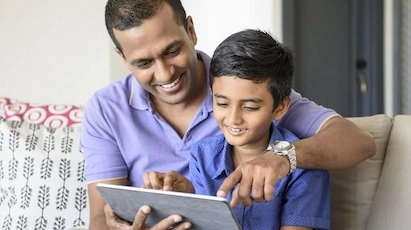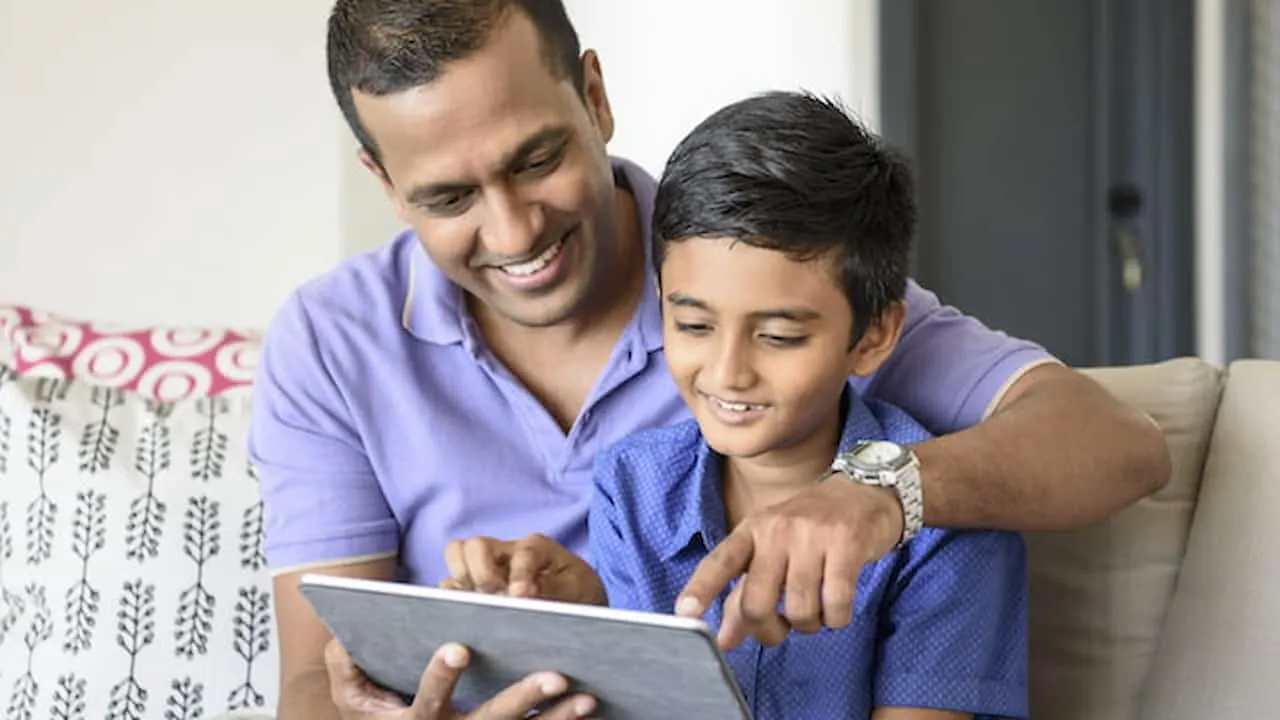Screen use is likely a part of your child’s life. However, excessive screen use may affect your child’s health and well-being. It is important to help your child learn to use screens wisely and find the right balance. Here are some conversation tips that you can use to guide your child in balancing their screen use.
Understanding excessive screen use
Not all screen time is equal. Your child might use screens for homework or learning new things online. Such screen use is different from passive screen use like scrolling through social media feeds. Evidence shows that too much passive screen time can make it harder for your child to make decisions, pay attention, and socialise. If your child shows signs and symptoms of excessive screen use, it is important to intervene to protect your child’s health and well-being.
Find out the recommended amount of screen time for your child’s age group from Ministry of Health's (MOH). Remember, while it may not be realistic to remove screen use totally, what matters most is that screen use should not interfere with your child’s health, studies, well-being, or development.
Four Tips To Manage Your Child’s Screen Use
Each family is unique, and it is important to work together to define your balance of screen use.
A. Start with Curiosity, Not Criticism
Begin by asking your child about their favourite online activities and what they enjoy most. Showing genuine interest opens the door to a non-confrontational conversation.
Ask:
- What’s your favourite game/app right now?
- Can you show me how it works?
- What's something you like about it? Why?
B. Discuss the Concept of Balance
Talk about the importance of balance in all aspects of life, including screen time. Let your child know that too much screen time can detract from other important activities or other activities that they enjoy.
Ask:
- What are some of our family's habits with devices like phones or TV? Have you ever checked your phone when you wake up or play video games before bed?
- How can we make sure our device habits do not get in the way of other important things like studies, sleep or spending time with friends and family?
C. Set Realistic Expectations Together
Set realistic screen use limits together. When your child helps make these decisions, they're more likely to stick to the rules you both agree on.
For younger children (2 to 12 years old), you may like to use a media plan to plan a balanced lifestyle that includes family time, outdoor activities, and screen use. Seal the plan with a tech agreement, which serves as a reminder for your child to commit to the plan.
For older children (13 to 17 years old), talk to them about finding a balance between screen use and other activities. Ask if they ever feel like their online activities get in the way of enjoying other activities. Then, help them figure out steps to balance their time and feel good about it.
Ask:
- How do you feel when you are online? What makes you feel that way?
- How do you feel when you are on other offline activities? What makes you feel that way?
- Do you ever feel like you've spent too much time on your online/offline activity? How does that make you feel? Why?
- How can we balance your use of time for offline and online activities?
Seek Professional Help
If you face challenges in managing your child’s excessive screen use, reach out to organisations that can help:
- TOUCH Community Services
TOUCHline: 1800 377 2252 (Mon to Fri, 9am – 6pm)
hello@help123.sg
- National Addictions Management service
6732 6837 (Mon to Sun and public holidays, 8.30am – 9pm)
Screen use should not get in the way of your child’s health and well-being. While it may not be practical to remove screen use altogether, you can set boundaries and promote various activities to help your child build a healthier relationship with technology.













